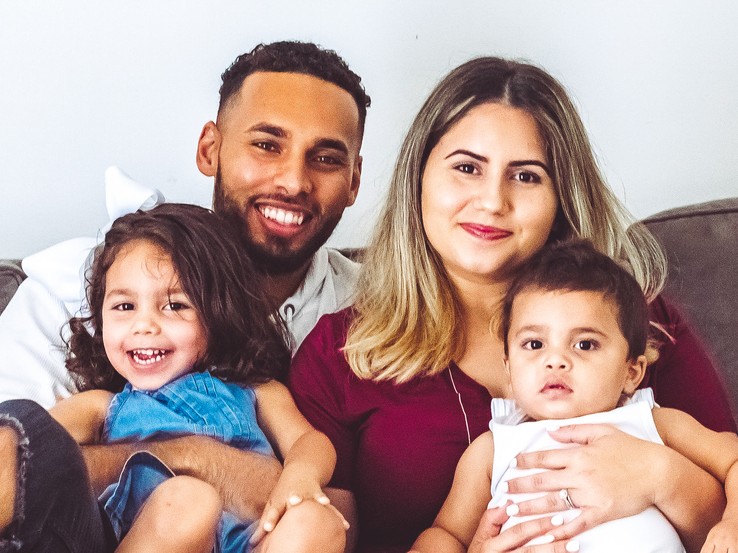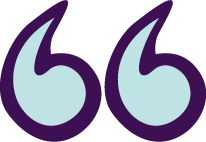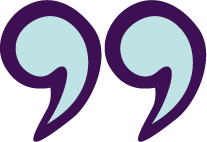The journey to identify that your child may have a disability can be emotional and challenging for families. However, a diagnosis can help you get the additional support your child may need. Trust your instincts and get a diagnosis if you think it will benefit your child.
Getting a diagnosis
Some children are diagnosed at birth or soon after. For others, it takes much longer and starts with identifying developmental delays in the toddler and pre-school years.
Developmental delay is a term used to describe a delay in a child’s development. A child with developmental delay needs extra help to do everyday things compared to children of the same age. For example, feeding or dressing themselves, talking, crawling, or walking.
Developmental delay can show in the way children move, communicate, think, learn, or behave with others. When more than one of these areas is affected, it is called global developmental delay.
Your child’s Maternal Health Nurse may be the first person to identify that your child has a delay in their development and may suggest you see your child’s doctor, or General Practitioner (GP).
Your GP will discuss your concerns with you and examine your child to find out what might be happening. They may then refer you to a paediatrician or another specialist.
A paediatrician is a medical doctor with specialised training in the health, growth, and development of babies, children, and teenagers.
Not every child who shows a developmental delay in childhood goes on to get a diagnosis.
Specialists and referrals
Specialists, such as paediatricians, can diagnose and treat various medical conditions. Depending on your child’s symptoms, a GP may refer you to other specialists like an orthopaedic surgeon, neurologist, or psychiatrist. You will need a referral letter from your GP to be eligible for a Medicare rebate.
The waiting list to see a paediatrician or specialist can be quite long, especially in the public health system.
Given that the National Disability Insurance Scheme (NDIS) requires a diagnosis by the age of six, it is important to start the process of getting a diagnosis as early as possible.
If your child is seeing therapists such as a speech therapist or an occupational therapist, the paediatrician will want to see any reports and assessments they have done.
Preparing for the appointment
Before visiting the paediatrician or specialist with your child, write down any physical, behavioural, or cognitive challenges you have noticed. It is important to fully understand what the specialist tells you, so ask for explanations if needed. You can ask questions, take notes, or bring someone who can assist you with this.
Your GP or specialist will also be interested in the medical history of you and your family, as this could be relevant to your child’s condition.
Diagnosis costs
The cost of getting a diagnosis depends on whether the specialist:
- Works in the public or private healthcare system
- Bulk bills under Medicare (where you don’t have to pay for the medical service)
- Requires a gap payment (the difference between the doctor’s charges and what Medicare or your health fund covers)
Some specialists may require full payment, and you may not get a reimbursement from your health fund.
Some specialists offer payment plans. If you are referred to a paediatrician in a private clinic, Medicare might not cover the whole cost, and you will need to pay the remaining amount. Some private paediatricians offer bulk billing for patients who need financial assistance. Sometimes the first consultation is the most expensive, and after that it gets cheaper. You can discuss the cost with the specialist.
NDIS funding cannot pay for the cost of a diagnosis because it is done by a medical specialist. But reports and assessments from NDIS-funded therapists can be given to the medical specialist to help inform the diagnosis.
Medicare rebates for diagnosis
Medicare can help with the cost of diagnosing people under 25 years of age. A referral from a medical practitioner is needed for the Medicare rebate. The Medicare rebate can help pay for the cost of the paediatrician or specialist and it can also help pay for assessments from allied health professionals.
Assessments done by schools
Schools can refer students for assessments to help them find out if a student is eligible to apply for support within the education system. These assessments can help to support a diagnosis. Cognitive and language assessments can be completed by qualified and fully registered psychologists and speech pathologists with the school. Referrals for these assessments come from schools and there can be a long wait.
After a diagnosis
A diagnosis is not always the last step. When your child starts kindergarten or school, there may be new experiences and challenges. Concerns about dyslexia, hearing, vision, or other issues may appear. Continuing to work with your child’s paediatrician and therapists will help your child get the support they need.
Talking about diagnosis with your child
Families often wonder when and how they should talk to their child about their diagnosis. Sometimes this conversation will be led by your child when they ask questions. This can be a sign your child is ready for some information. It’s best to start with a little information first and make it part of your everyday conversations.
Talk to your child about their disability or diagnosis at a level they will understand. As they grow older, they will be ready for more information. You might need to explain why they need to do things differently to other children or why they have regular medical appointments or hospital visits.
Sharing children’s books and watching TV shows that feature children with disability is a good way to make disability an everyday part of what you talk about as a family.
You don’t need a diagnosis for the following support:
- NDIS for children aged 0 to 6
- Inclusion Support Program (support in child care, family day care and outside school hours care)
- Kindergarten Inclusion Support
- Disability Inclusion (school)
You do need a diagnosis for the following:
- NDIS for children aged 6 and older
Useful links
Medicare items for Complex Neurodevelopmental Disorders and eligible disabilities
Inclusion Support Program (ISP)
Preschool Field Officer Program
Kindergarten Inclusion Support (KIS)
Disability Inclusion (DI)






